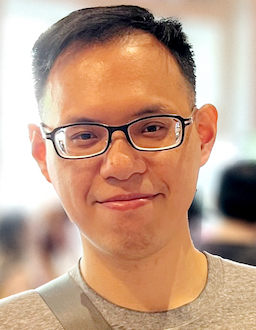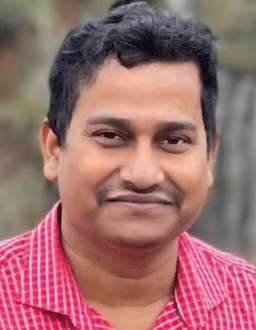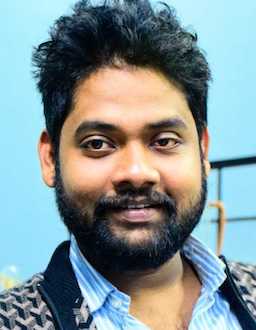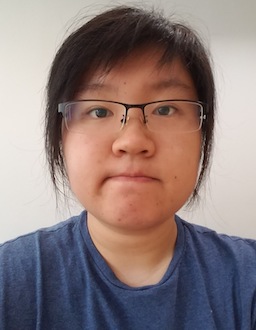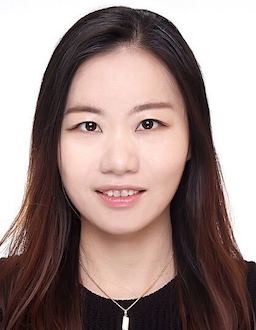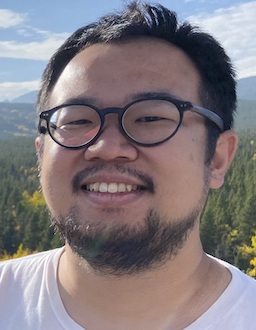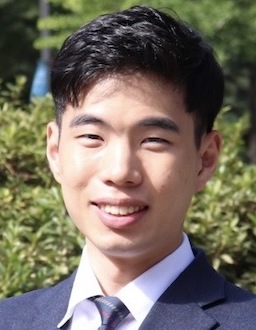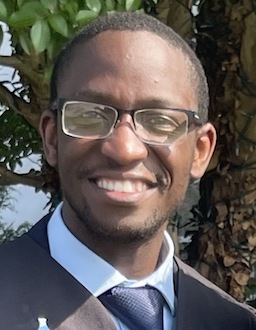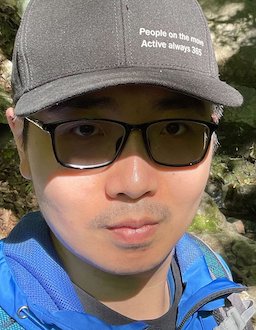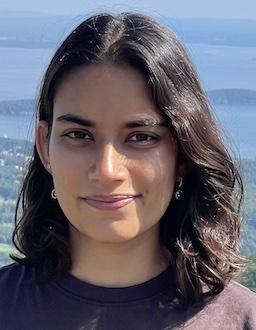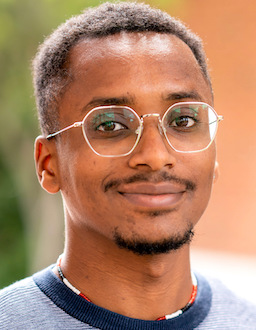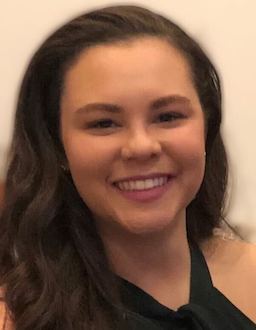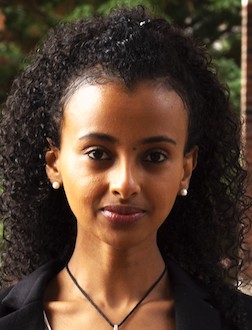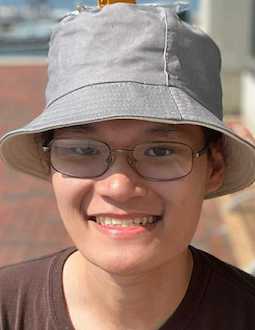Principal Investigator
|
|
Sua obtained her BA and PhD at University of California, Berkeley. During her postdoctoral years at University of Illinois, Urbana-Champaign (UIUC), she changed her research from molecular biology to single molecule biophysics. Sua began her independent career as an Assistant professor in Bioengineering department at UIUC and moved to Biophysics department at Johns Hopkins University as an Associate Professor where she also served as a Director of Undergraduate Students. She joined the Program for Cellular Molecular Medicine (PCMM) at the Boston Children’s Hospital as a Professor starting August of 2023. Sua loves musical activities including singing and playing instruments and cooking for friends and family. |
Senior Staff Scientists
|
|
Chun-Ying “Jim” Lee Jim, a dedicated scientist passionate about unraveling the science of life. Holding BS and MS degrees in Chemistry from National Taiwan University, he earned a PhD in Biophysics from Johns Hopkins University in 2021 under Dr. Myong's mentorship. Jim's research delved into the enigmatic realm of G quadruplex and its mysterious role in the central dogma. Employing innovative in vitro and in vivo techniques, he explored DNA G4's impact on transcription, even dissecting transcription stages via single-molecule approaches. His investigation extended to RNA G4, uncovering their function on regulating translation efficiency in the E. coli system. Currently, Jim continues working with Dr. Myong as a staff scientist in Boston Children’s Hospital. His focus now rests on comprehending the global regulatory role of R-loops in gene expression across diverse cell stages and types. With an unyielding curiosity, Jim continues to shed light on the molecular mechanisms that underlie life's fundamental processes. |
|
|
Tapas Paul Tapas obtained his BSc and MSc in chemistry from Calcutta University and his PhD in Chemistry from the Saha Institute of Nuclear Physics, West Bengal, India. He joined Prof. Myong’s lab as a postdoctoral fellow at Johns Hopkins University in 2018. Then he moved with the entire lab to Boston Children’s Hospital in 2023, and his position was promoted to Senior Staff Scientist. His research interests included DNA breathing and looping dynamics, but he now focuses on telomere overhang folding, specifically G-quadruplexes (G4) and the telomere binding accessory shelterin proteins. Additionally, he worked on different G4 binding and unwinding helicases. In his free time, he likes to play cricket, football, and badminton and enjoys cooking. |
Postdoctoral Fellows
|
|
Nilimesh Das
Nilimesh got his formal education in chemistry from Calcutta and Presidency University and obtained his PhD from IIT Kanpur, India. His PhD work applied a single molecular technique: FCS, and a few fluorescence-based ultrafast spectroscopic techniques to study protein behaviour in crowded environments. He joined the Myong lab in 2023 and will study an interesting polymer: PAR using various microscopic techniques. In his spare time, he likes to read novels and enjoys cooking. |
|
|
Stephanie Gu
Stephanie earned her BS in Chemical Engineering from the California Institute of Technology and her PhD in Biochemistry from Duke University. Her doctoral research used solution NMR approaches to study the structural dynamics of DNA at the base pair level. In 2024, Stephanie joined the Myong lab as a postdoctoral fellow to explore the biophysical effects of polyamines on nucleic acids and their interactions with proteins. In her free time, she enjoys watching food videos on Youtube and dog-watching at the park. |
|
|
Jihee Hwang
Jihee earned her BS in Chemistry from Han-yang University and her PhD in Biophysical Chemistry from Seoul National University, South Korea. Her doctoral research concentrated on advancing super-resolution imaging techniques and understanding protein-nucleic acid interactions through single-molecule methods. In 2020, she joined Prof. Myong’s lab as a postdoctoral researcher, exploring the impact of G-rich sequences and R-loops on gene expression. Outside of her work, Jihee enjoys cooking and traveling. |
|
|
Hsuan-Lei Sung
Hsuan-Lei obtained his BS in Chemistry from National Taiwan University, and PhD in Chemistry from the University of Colorado Boulder. His PhD work used single molecule methods to study the structural dynamics of DNA/RNA in response to temperature and extreme pressure. In 2023, Hsuan-Lei joined the Myong Lab as a postdoctoral fellow. At the moment, he is still exploring potential projects about nucleolus structure and functions. Outside the lab, he likes to go to the mountains, local cinemas, and browse farmer’s markets. |
Graduate Students
|
|
Sunghyun Cho
Sunghyun graduated from Seoul National University with a BS and MS in Mechanical Engineering. He investigated the interaction between genomic loci and nuclear condensates utilizing Oligopaint-FISH. Currently, he is a PhD student in BBS graduate program at Harvard. He began his PhD in the Myong lab in 2022 with a focus on exploring the effects of RNA binding protein on RNA folding pathways and RNA Structurome in cells. Outside of the lab, he enjoys traveling, playing many kinds of sports, singing, and dancing. |
|
|
Nathalie Djaja
Nathalie obtained her BS in Biochemistry and Cell Biology from the University of California, San Diego. She joined the Myong lab in Summer 2020 as a PhD student from the CMDB program at Johns Hopkins. Her work focuses on the single molecule nucleation and dissolution of ALS/FTLD-linked FUS condensates. She is a recipient of NIH Ruth L. Kirschstein Predoctoral Individual NRSA, F31 award. In her free time, Nathalie loves to travel, lift, bake, take care of houseplants, and play with her puppy, Moose. |
|
|
Thembalami Dube
Thembalami graduated with highest honors, earning a Bachelor of Arts in Biophysics from Swarthmore College in 2024. During his four years at Swarthmore, he worked in Dr. Dawn Carone’s lab, culminating in his undergraduate honors thesis. In this thesis, Thembalami investigated the biophysical properties of HSAT2, a long non-coding RNA (lncRNA) uniquely expressed in cancer cells but absent in normal cells. Contributing to the understanding of its role in cancer cells. In his current role in Dr. Sua Myong’s lab, Thembalami collaborates closely with Dr. Sergei Rudnizky to elucidate the chromatin architecture and landscape changes associated with the DNA Damage Response. This research aims to uncover the intricate mechanisms by which cells detect and repair DNA damage, thereby enhancing our knowledge of genomic stability and its implications for disease therapy. Outside the lab, Thembalami leads an active lifestyle. He is an avid runner, cyclist, and walker, and has recently incorporated pilates into his routine. |
|
|
Yingda Ge
Yingda is a PhD student in the Jenkins program at Johns Hopkins University. He obtained his BS degree in Physics from Peking University. He joined the Myong Lab in the Summer of 2020, and his project focuses on combining single-molecule and other biophysical methods to dig out the molecule mechanisms of FUS-RNA phase separation. In his spare time, he enjoys hiking, skiing, and cooking.
|
|
|
Meera Joshi
Meera is a PhD student in the Jenkins Biophysics Program at Johns Hopkins University and joined the Myong Lab in the summer of 2021. She obtained her BA in Biochemistry and Molecular Biology from Wesleyan University in 2020. Her research focuses on how G-Quadruplex, a nucleic acid secondary structure, can affect translation processes. In her spare time, she enjoys reading and long walks.
|
|
|
Gemechu Mekonnen
Gemechu is a PhD student in the Cell, Molecular, Developmental Biology, and Biophysics program at Johns Hopkins University. He is ethnically Oromo and was born in Ethiopia. He received a dual degree in Genetics, Cell Biology, and Development (BS) and Political Science (BA) from the University of Minnesota-Twin Cities. Gemehu is interested in bimolecular condensates which is implicated in neurodegenerative diseases including ALS. His current project explores how the RNA helicase DDX6 regulates FUS phase separation and the resulting condensate property. He is a recipient of NIH Ruth L. Kirschstein Predoctoral Individual NRSA, F31 award. |
|
|
Bradleigh Palmer
Bradleigh is a PhD student in the CMDB program at Johns Hopkins University. She obtained her BS in Biology from Washington and Lee University. She joined the Myong lab in 2020 to study how G-quadruplexes and R-loops impact transcription and translation. She is exploring the role that R-loop formation plays in RNAP kinetics. She is a recipient of NIH Ruth L. Kirschstein Predoctoral Individual NRSA, F31 award. In her free time, she enjoys reading, hiking, and baking. |
|
|
Bersabel Wondimagegnhu
Bersabel is a PhD student in the CMDB program at Johns Hopkins University. She joined the Myong lab in 2020. She obtained her BS in Biochemistry from University of Massachusetts Boston. Her research focuses on the role of TERRA in telomere maintenance and cancer. She is a recipient of NIH Ruth L. Kirschstein Predoctoral Individual NRSA, F31 award. In her spare time, she enjoys traveling, swimming, and running.
|
|
|
Xincheng Yuan
Xincheng is a PhD student in the CMDB program at Johns Hopkins University and joined the Myong Lab in the summer of 2022. He received his BA in Biology from Queens College, City University of New York. His research focuses on exploring the role of FUS on DNA damage response and nucleolar stress. In his free time, he likes to play board games, propagate house plants and take long walks during the winter.
|
Junior Scientist
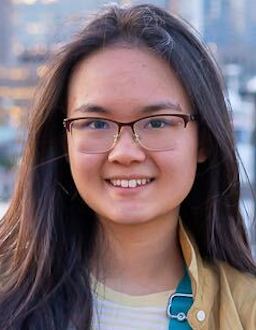
|
Leya Yang
Leya grew up and lived in Guam until high school. She got her bachelor’s degree in Biophysics department at Johns Hopkins University where she met Dr. Myong and joined her lab in 2022. During her undergraduate research, she performed experiments to study co-transcriptional condensation of highly disordered RNA binding protein, FUS. In her new position, Leya, together with Dr. Tapas Paul will investigate the role of G-quadruplex and R-loop in transcriptional regulation as a function of G-rich sequence variation.
|


